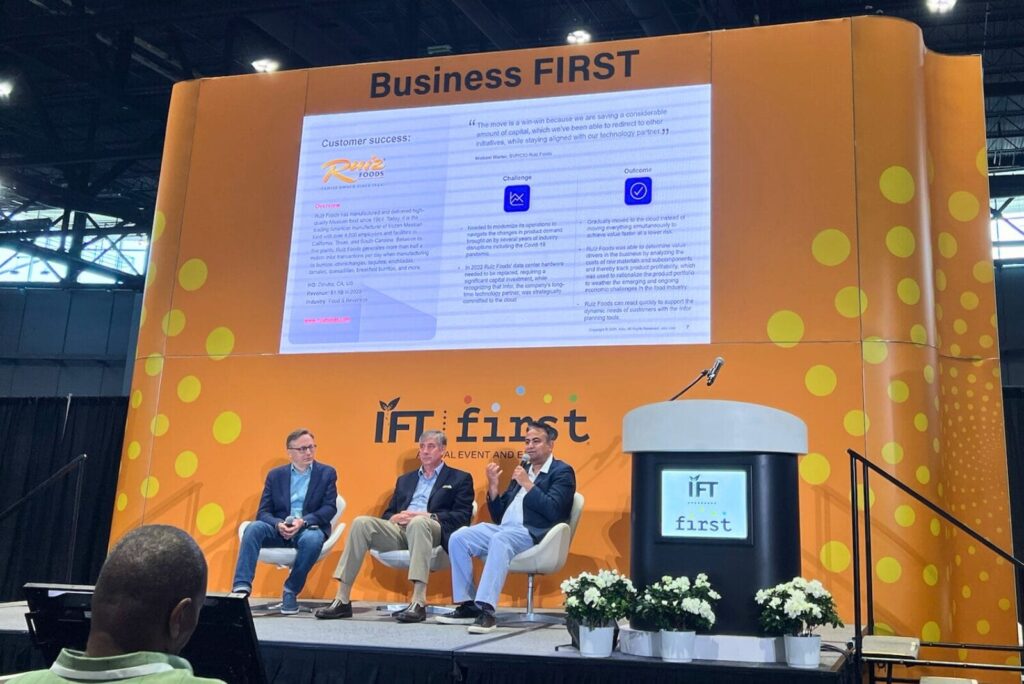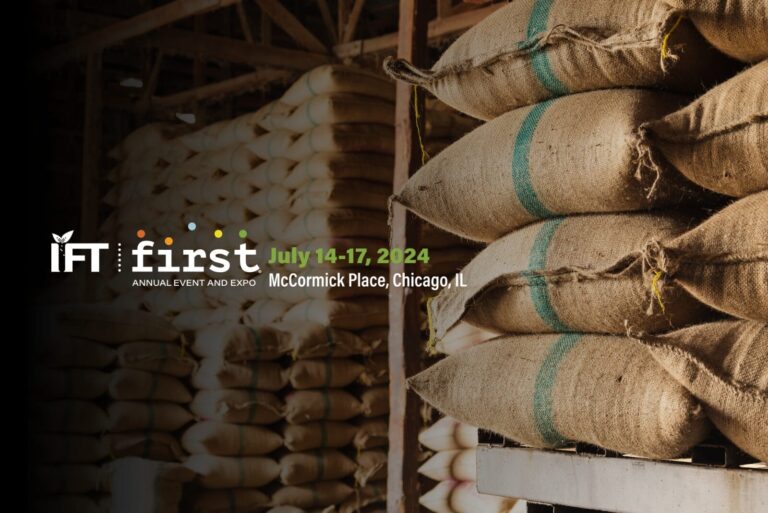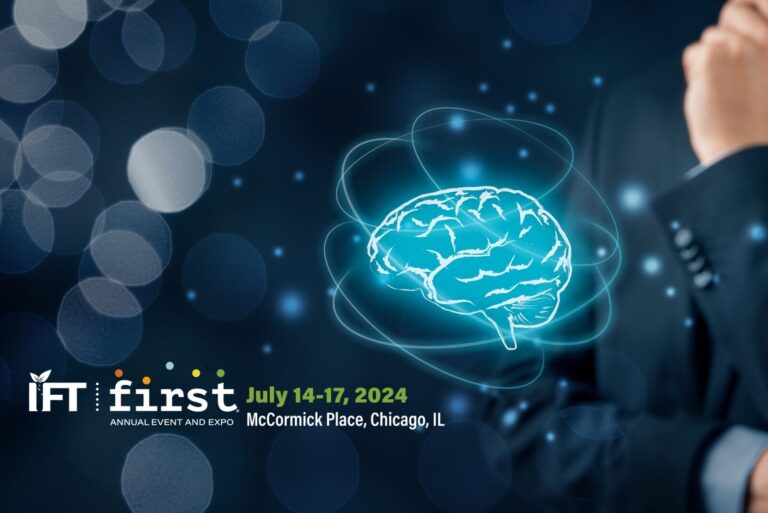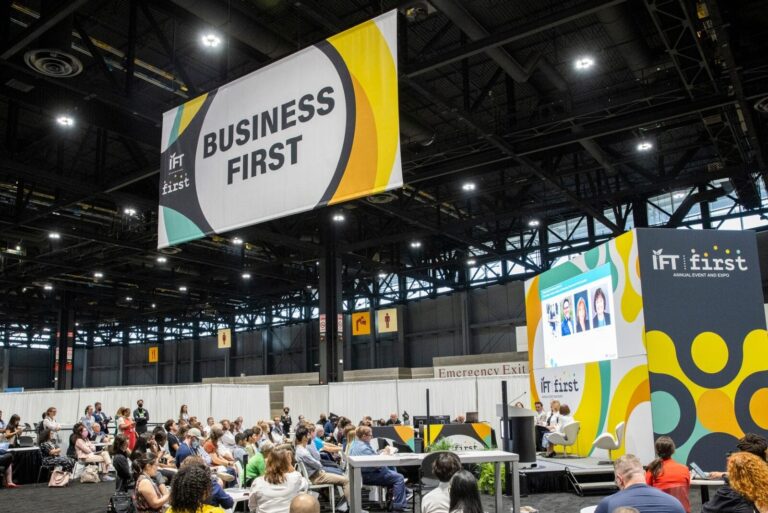CHICAGO — The use of AI tools in the food science industry was a hot topic at the Institute of Food Technology’s IFT FIRST event, held July 14-17 in Chicago.
During the “Harnessing AI and PLM for Next-Level Food and Beverage Innovation” session, industry professionals discussed how integrating AI and product lifecycle management (PLM) software can transform the food and beverage industry.
PLM is a system designed to manage the entire lifecycle of a product, from initial concept through design, manufacturing, service and disposal.
Eric Krums, senior solution associate at Infor, explained PLM can serve as a foundation for companies to build upon with other AI tools, expressing the importance of properly feeding the model with the right data.










